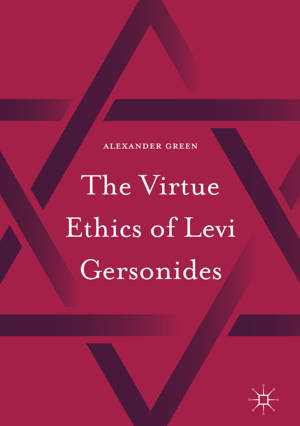
- Afhalen na 1 uur in een winkel met voorraad
- Gratis thuislevering in België vanaf € 30
- Ruim aanbod met 7 miljoen producten
- Afhalen na 1 uur in een winkel met voorraad
- Gratis thuislevering in België vanaf € 30
- Ruim aanbod met 7 miljoen producten
Zoeken
Omschrijving
This book argues that Levi Gersonides articulates a unique model of virtue ethics among medieval Jewish thinkers. Gersonides is recognized by scholars as one of the most innovative Jewish philosophers of the medieval period. His first model of virtue is a response to the seemingly capricious forces of luck through training in endeavor, diligence, and cunning aimed at physical self-preservation. His second model of virtue is altruistic in nature. It is based on the human imitation of God as creator of the laws of the universe for no self-interested benefit, leading humans to imitate God through the virtues of loving-kindness, grace, and beneficence. Both these models are amplified through the institutions of the kingship and the priesthood, which serve to actualize physical preservation and beneficence on a larger scale, amounting to recognition of the political necessity for a division of powers.
Specificaties
Betrokkenen
- Auteur(s):
- Uitgeverij:
Inhoud
- Aantal bladzijden:
- 195
- Taal:
- Engels
Eigenschappen
- Productcode (EAN):
- 9783319821924
- Verschijningsdatum:
- 11/07/2018
- Uitvoering:
- Paperback
- Formaat:
- Trade paperback (VS)
- Afmetingen:
- 148 mm x 210 mm
- Gewicht:
- 272 g

Alleen bij Standaard Boekhandel
+ 48 punten op je klantenkaart van Standaard Boekhandel
Beoordelingen
We publiceren alleen reviews die voldoen aan de voorwaarden voor reviews. Bekijk onze voorwaarden voor reviews.











